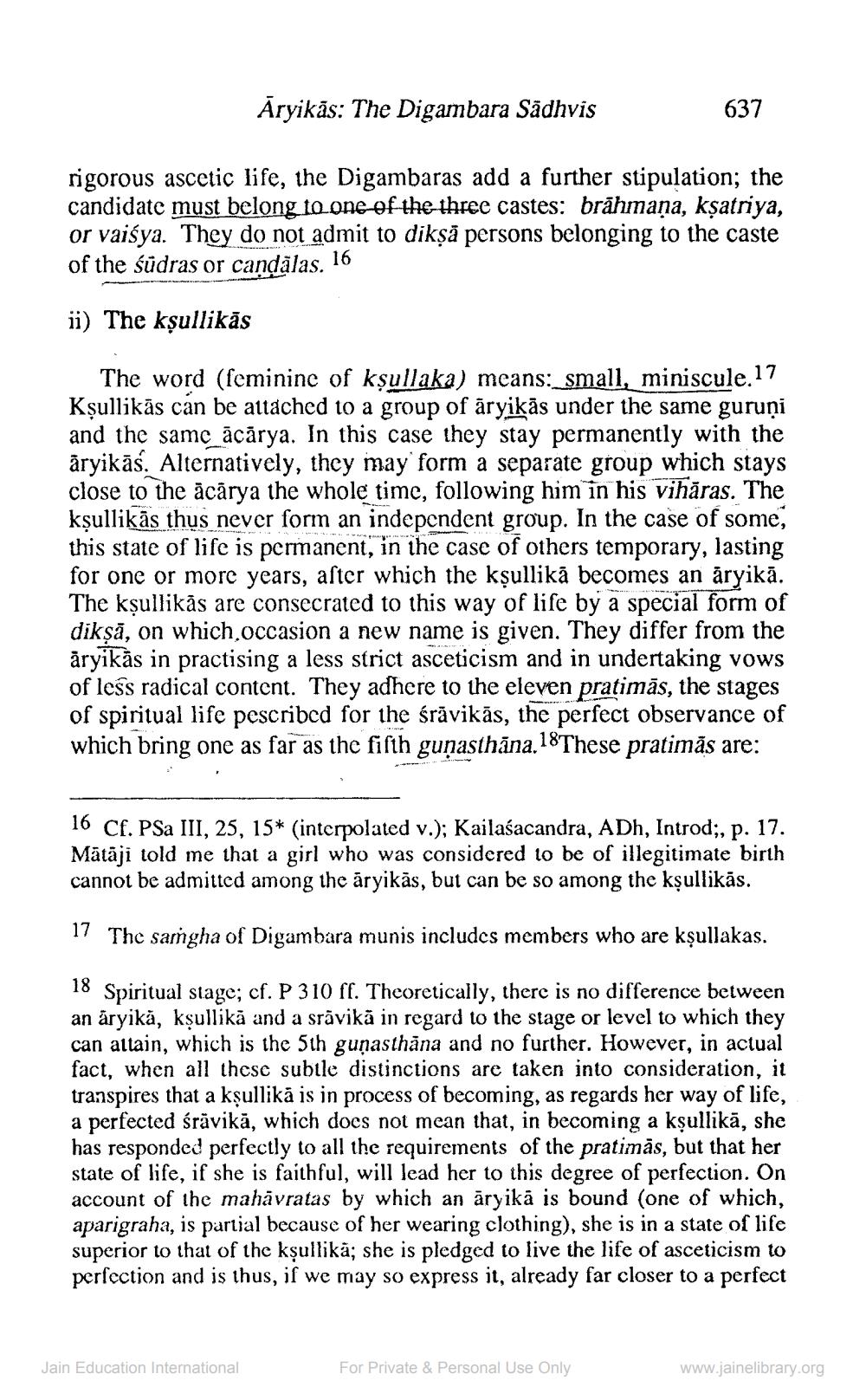________________
Āryikās: The Digambara Sadhvis
637
rigorous ascetic life, the Digambaras add a further stipulation; the candidate must belong to one of the three castes: brāhmaṇa, kșatriya, or vaisya. They do not admit to dikṣā persons belonging to the caste of the südras or candālas. 16
ii) The kşullikās
The word (feminine of kşullaka) means: small, miniscule.17 Kșullikās can be attached to a group of āryikās under the same guruņi and the same ācārya. In this case they stay permanently with the
kās. Alternatively, they may form a separate group which stays close to the acārya the whole time, following him in his vihāras. The kşullikās thus never form an independent group. In the case of some, this state of life is permanent, in the case of others temporary, lasting for one or more years, aster which the kşullikā becomes an āryikā. The kşullikās are consecrated to this way of life by a special form of dikṣā, on which occasion a new name is given. They differ from the āryikās in practising a less strict asceticism and in undertaking vows of less radical content. They adhere to the eleven pratimās, the stages of spiritual life pescribed for the śrāvikās, the perfect observance of which bring one as far as the fifth gunasthāna. 18These pratimās are:
16 Cf. PSa III, 25, 15* (interpolated v.); Kailasacandra, ADh, Introd;, p. 17. Mātāji told me that a girl who was considered to be of illegitimate birth cannot be admitted among the āryikās, but can be so among the kşullikās.
17 The samgha of Digambara munis includes members who are kşullakas.
18 Spiritual stage; cf. P 310 ff. Theoretically, there is no difference between an årvikå, ksullik, and a srávikā in regard to the stage or level to which they can attain, which is the 5th gunasthāna and no further. However, in actual fact, when all these subtle distinctions are taken into consideration, it transpires that a kşullika is in process of becoming, as regards her way of life, a perfected śråvikā, which does not mean that, in becoming a kşullikā, she has responded perfectly to all the requirements of the pratimās, but that her state of life, if she is faithful, will lead her to this degree of perfection. On account of the mahāvratas by which an āryika is bound (one of which aparigraha, is partial because of her wearing clothing), she is in a state of life superior to that of the kşullika; she is pledged to live the life of asceticism to perfection and is thus, if we may so express it, already far closer to a perfect
Jain Education International
For Private & Personal Use Only
www.jainelibrary.org




